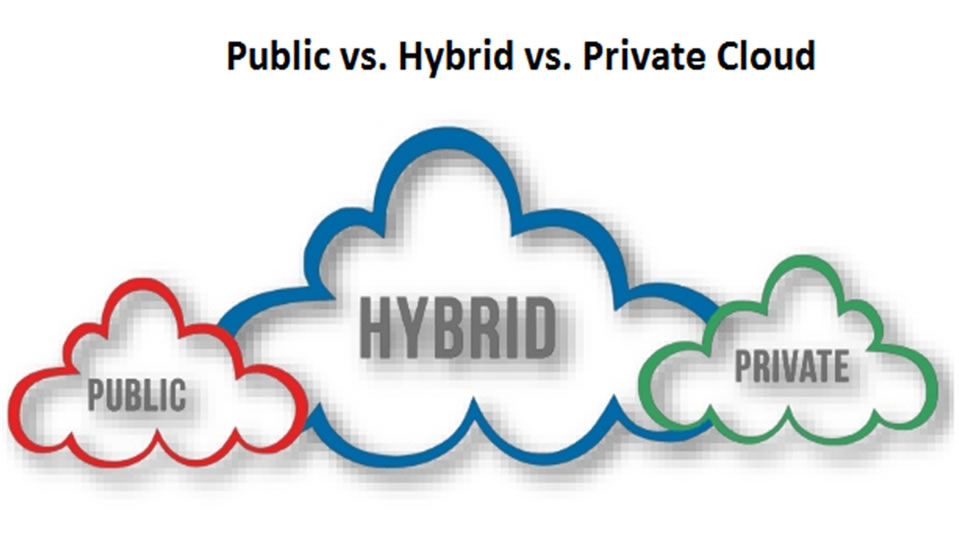 Cloud storage services are a constantly developing field. As new and new businesses are emerging working over new technologies, the requirement of secure cloud storage is emerging. Till now private and public cloud services were all over the place. They were ruling the market of cloud storage services, but here comes the hybrid cloud hosting which is the new talk of the town. Each and every development been done in the cloud hosting world has been marvelous and so is the hybrid cloud.
Cloud storage services are a constantly developing field. As new and new businesses are emerging working over new technologies, the requirement of secure cloud storage is emerging. Till now private and public cloud services were all over the place. They were ruling the market of cloud storage services, but here comes the hybrid cloud hosting which is the new talk of the town. Each and every development been done in the cloud hosting world has been marvelous and so is the hybrid cloud.
A hybrid cloud can be a very confusing term as well as a concept in itself. Although many explain it in simple words as multiple clouds inside a secured single environment. But the technology behind this creation is not depicted well with this definition. It can be best defined as multiple public clouds connected to each other within the environment of a single private cloud or within the environment of a single data center. Although within the hybrid cloud environment also, public and private are well differentiated. They are distinct and are planted with their own set of elements. The hybrid cloud platform brings together the combination in the most unified and automated computing background. Public and private clouds come together to create wonders.
Let’s see the specifications of a hybrid cloud one by one-
- When a public cloud platform is used to send data to a private cloud or for that matter to any data center-based application.
- When there are multiple SaaS applications moving data between private or data center resources.
- When multiple businesses connect together within a single environment.
But don’t get confused with the scenarios wherein a public cloud service is used to model any new upcoming application. Also, when a SaaS application is used for a project but there is no movement of data from the application to the company’s data center then it’s not considered to be a hybrid cloud. These are some misconceptions that come very frequently. To sum up, a mesh of on-premises private cloud resources reinforced with third-party public cloud resources is what you call a hybrid cloud.
Why hybrid cloud better than public and private?
Each cloud hostingservices have their own set of benefits. A private cloud is trusted with the kind of security it caters to the data hosted over it. Public cloud attracts small business owners like startups and entrepreneurs due to the effective cost at which it comes. But how about a cloud hosting service that is the perfect amalgamation of the benefits of both the public as well as a private cloud or you would say the best of both the worlds.
Let’s see the benefits of hybrid cloud one by one-
- The first and foremost benefit of a hybrid cloud is its flexibility. In any other kind of cloud hosting service, adding capacity requires pre-planning. But this is not a problem with the hybrid cloud environment. Cloud bursting is something; the hybrid cloud is good at. Cloud bursting is basically an anonymous requirement of excess resources and capacity. You can understand this thing by example. Those websites which undergo seasonal traffic spikes experience the maximum cloud bursting. Also, there are some websites that experience different burdens from different geographic locations. Hybrid cloud is efficient enough to give the optimum elasticity to deal with this such unanticipated loads without any changes in the infrastructure. Due to this, the burden is released and IT loads are managed properly.
- Hybrid cloud resources are cost-effective when compared to the private cloud. In terms of advantages, it caters it is still cost-effective when compared to a public cloud. The cost of hybrid cloud best suits the services. These services also can be rescaled, redeployed and reduced or increased when necessary.
- The specialties of both the public and private altogether give hybrid cloud more security and regulation. The public cloud-related concerns cannot hamper your sensitive applications. For your sensitive applications, the private cloud is simultaneously maintaining security. Hence, the common concerns that generally arise in the cloud infrastructure i.e. security and multi-tenancy are not at all an issue with the hybrid cloud.
Applications of Hybrid cloud-
There are plenty of organizations that have bowed down to cloud technology, but after the introduction of the hybrid cloud, they are even more impressed now by the cloud-native technology. Sectors like finance or in close proximity to it do not want to take risk of hosting itself on a public cloud when they know that there can be trust issues. Things like trading orders are best suited for hybrid infrastructure.
Lately and frequently, hybrid cloud technology has found many applications in the healthcare sector. This is because this sector is in constant contact with healthcare products providers and the insurance companies. Seamless data of the patients have to be transferred across these domains. This incognito information related to the patients can only be trusted with the hybrid cloud.
For similar reasons as was in the case of healthcare, law sector firms trust over hybrid cloud infrastructure.
The best part of the hybrid cloud that exerted such influence was its flexibility to switch between public and private clouds whenever such a requirement comes. This switch is so organic that they can think for a long-term investment. Also, the tension that came up as part and parcel with the search of a third-party data center is gone forever. Thus, all the computing tasks can be now performed by remaining inside the company firewall only.
So after learning a lot about hybrid cloud and its benefits, you would want this kind of cloud for your application as well. But before that, you have to thoroughly think about whether your application even requires one or not. Let’s say your application has mission-critical factors due to data transport and latency. The hybrid cloud solution can be a problem when the organization is on a tight IT budget. This is the case especially in the small companies, then opting for an adequate public cloud provider would be the best solution. But going for a hybrid cloud would definitely give your business the edge that it deserves.





